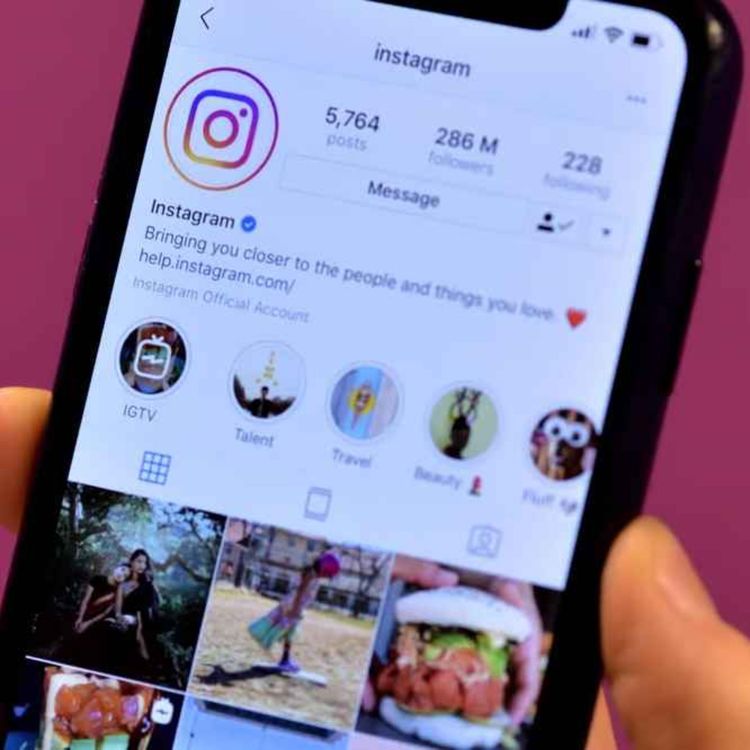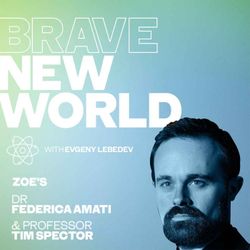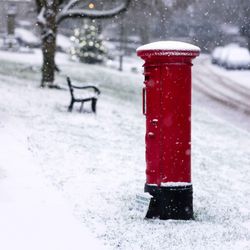Share

Tech and Science Daily | The Standard
Will Instagram’s new Edit app rival TikTok?
Season 1
•
Move over Reels, Instagram has now launched its new video creation app called Edits, which aims to enable users to create and edit videos directly on their phones before sharing them. But, is this another move from Meta to rival TikTok’s capcut?
Are we closer to understanding if animals grieve like humans do?
We join MSc student Emily Johnson, at UCL Anthropology, who says their findings represent the first systematic study into whether primate mothers show similar behavioural responses to death as humans.
Also in this episode:
- Bethesda finally officially released The Elder Scrolls IV: Oblivion Remastered
- Sir David Attenborough to reveal mankind’s history in an immersive exhibition
- Formula E will return to London’s Excel conference centre
- Scientists say they’ve discovered a brand new colour…
More episodes
View all episodes

Christmas Eve Tech & Science Daily: Whitechapel fatberg, Crystal Palace Dinosaurs glow-up, Fortnite Winterfest, GTA festive gifts, and a hopeful Parkinson’s science update
06:46||Season 1On this Christmas Eve edition of Tech and Science Daily from The Standard, we’re keeping it festive but still very London: Thames Water tackles a fresh Whitechapel fatberg blockage, while Crystal Palace Park’s iconic Victorian dinosaur sculptures get a long-overdue restoration glow-up. After the break, we dip into seasonal gaming with Fortnite Winterfest and GTA festive gifts, plus a quick consumer tech check-in for last-minute kit. And in science, we’ve got a hopeful update on new research reshaping how we think about dopamine and movement in Parkinson’s. Head to Standard.co.uk for all the latest
London robotaxis set for 2026 trials, the UK’s “year of the octopus”, and how AI digital twins could reshape future cities
09:46||Season 1On today’s Tech and Science Daily from The Standard, we look at plans for robotaxi trials in London in 2026, plus the surprising UK science story being dubbed the “year of the octopus” after a boom in sightings and catches off England’s south coast. Then Alan Leer drops into an interview with Johannes Maunz, Senior Vice President of AI at Hexagon, on AI-enhanced digital twin mapping — and how virtual city models could help London plan everything from driverless transport to climate-resilient infrastructure and pedestrian-first streets. For more updates, visit standard.co.uk
Vodafone franchisee legal battle: 62 ex-partners sue, MPs step in — plus Starlink “super Wi-Fi” on Waterloo trains
11:32||Season 1On Tech and Science Daily from The Standard, we lead with an extended interview package on claims from former Vodafone franchisees — with 62 ex-partners taking legal action and Vodafone denying wrongdoing. Plus, a London commute upgrade: South Western Railway trials Starlink-powered “super Wi-Fi” on routes in and out of London Waterloo, and we wrap with a quick contactless payments rule change and a free S.T.A.L.K.E.R. 2 content update. For more, visit standard.co.uk.
Professor Tim Spector and Dr Federica Amati on Brave New World (Preview)
15:15||Season 1On our sister podcast Brave New World, Host Evgeny Lebedev is joined by Professor Tim Spector and Dr Federica Amati — two of the leading scientific voices behind personalised nutrition company ZOE — to rethink everything we’ve been told about food. From the myths around “good” and “bad” fats to calorie-counting obsessions, they explain why so much nutritional advice is outdated, oversimplified, and in some cases actively harmful. They also explore the impact of ultra-processed foods on gut health, question whether breakfast really is the most important meal of the day, and unpack how time-restricted eating could help optimise daily health.Here’s your special preview. To hear the full episode, just search Brave New World Evening Standard on your podcast app.
Steam Winter Sale starts, UK planning shake-up for broadband, Ofcom hands out an Online Safety Act fine — plus a wholesome “robot double” school story
07:48||Season 1The Government opens a call for evidence on reforming planning rules to speed up digital infrastructure rollouts in England, Ofcom issues a £20,000 fine under the Online Safety Act for failing to respond to information requests, and the Steam Winter Sale kicks off for the annual backlog-pile-on. We also finish on a genuinely wholesome tech-for-good story from SpecialEffect, where a small telepresence “robot double” helps a child stay connected to school during leukaemia treatment. For all the latest news head to Standard.co.uk
London councils cyber incident update, London quantum cluster, UKRI boosts games and AI, plus Revolut Mobile and Alexa+ on the web
05:30||Season 1Today on Tech and Science Daily from The Standard: the latest on the Westminster and Kensington & Chelsea cyber incident, a quantum year-end update from Imperial and the London Quantum Cluster, and UKRI’s shift toward growth funding — including video games. Plus, Revolut’s new UK mobile service, Alexa+ arriving on the web, and a couple of practical gaming and headset updates
Pinterest Predicts 2026 interview, Ofcom probes EE and Three outages, and London robots that can “feel” — Tech and Science Daily from The Standard
12:03||Season 1Ofcom investigates BT’s EE and Three after major call outages affected emergency services, plus King’s College London research aiming to give robots a sense of touch. We also hear from Pinterest’s Sidney Stanback on the Pinterest Predicts 2026 report and how trend forecasting is speeding up, then cover the UK’s quantum push with Google’s Willow processor, an autonomous spacecraft rendezvous milestone, a UK-backed plan to produce lead-212 radiotherapy isotopes from reprocessed uranium, a warning on budget smartphone pricing pressures in 2026, and a quick gaming performance update from Capcom. For more, visit standard.co.uk.
London Sea Level Rise AI Images, Lancet Countdown 2025 Climate Health Report, and Antarctica’s New Royal Mail Postbox
05:58||Season 1In today’s episode of Tech and Science Daily from The Standard, we start in London with AI visuals imagining what a six-metre sea level rise could mean for landmarks like Westminster and the Tower of London. Then we break down the Lancet Countdown 2025 findings on climate change and public health, from heat impacts to air pollution, and why it matters for cities like London. Plus, a lighter science story: researchers at Rothera Research Station in Antarctica get a brand-new Royal Mail postbox delivered via the RRS Sir David Attenborough. For more tech and science news, head to standard.co.uk
The Game Awards 2025 Winners & Biggest Reveals — Plus London ADHD Custody Study and UK Rail Timetable Change
08:49||Season 1Today we’re going big on The Game Awards 2025 — the winners, the indie sweep, and the announcements that just set up the next couple of years in gaming. Plus, we cover a major London custody screening study on undiagnosed ADHD, and the new UK rail timetable landing this weekend. For more, head to standard.co.uk.